It was Friday night, but no sound could be heard from the usually bustling condominium.
Just across the street, a busy string of mamaks was operating even though it was past midnight. The silence in the condominium was not because the residents were sound asleep.
An immigration raid was taking place inside.
Two hours earlier, a convoy of immigration vehicles had come into the condominium. Men and women in ash grey military fatigues ordered the entire building to be fully locked down.
The tenants, a significant portion being asylum seekers and refugees, were jolted into a fearful frenzy when they realised that the authorities were going door-to-door, checking everyone’s documents.
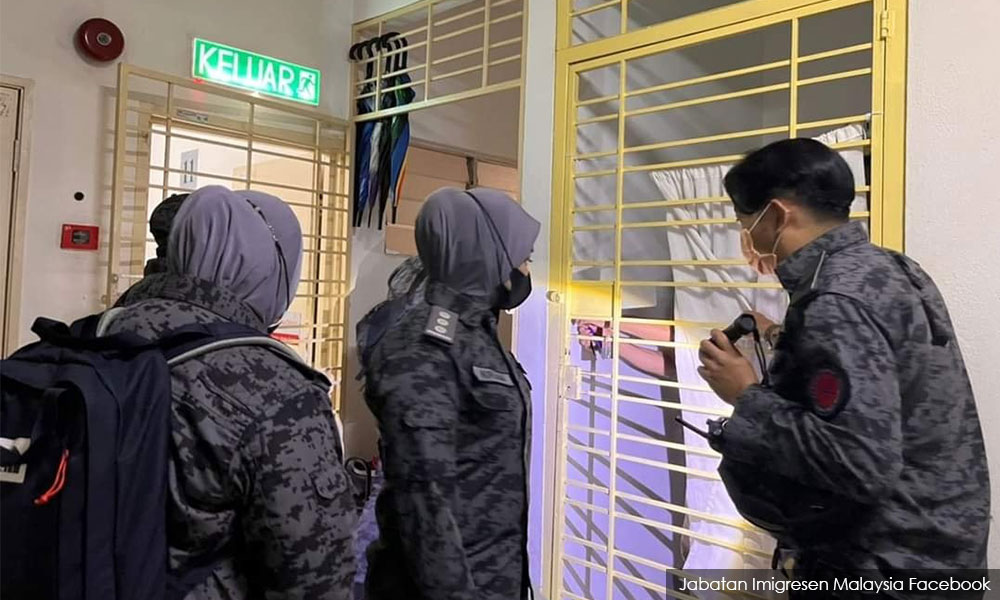
According to Malaysian Immigration Laws, there is no distinction between asylum seekers, refugees, and migrants without legitimate documents. All are considered illegal.
But outside, a few Malaysian landlords gathered.
“How can they do this to them? They are paying tenants. Have some sympathy for them. They are refugees,” said one Malaysian Chinese landlord who was alerted by his tenant and upset by what he saw happening.
Families, including babies, children, women and elderly folks, were hauled up into an immigration truck that carried them off to the Jalan Duta Immigration Department.
Under normal circumstances, they could have been held for up to 14 days. But that night, all were released before dawn.
Safety is meant to be a human right, but not everyone living in our midst is able to exercise this right.
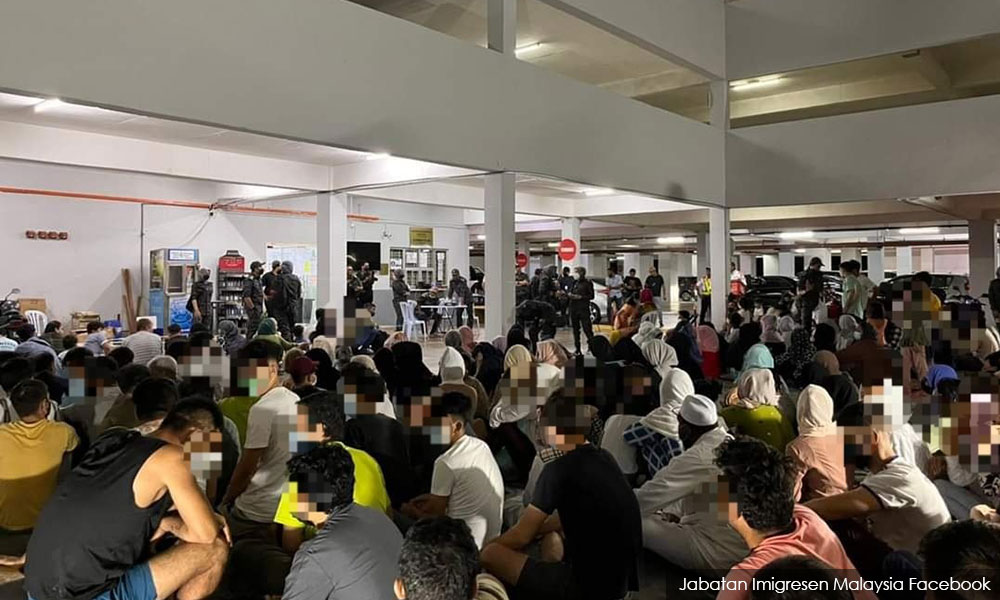
The fear of the unknown
As the world sees the unfolding of several refugee crises, the question remains - can people find safety in their home countries again?
The recent Russia-Ukraine crisis demonstrates how the change of circumstances can dramatically impair a person’s life. One moment you’re a resident, and the next moment you are fleeing your comfort zone in search of safety.
We read the news and sympathise with the Ukrainians becoming victims of war. Yet when it comes to the refugees in Malaysia, there appear to be mixed feelings about their being here. Some feel they are here to take our jobs.
Refugees are compelled to leave behind homes because of the discrimination faced for their race, religion, nationality, membership in a particular social group or political opinion. Many are forced to flee due to armed conflicts and other complex human rights violations that threaten their lives.
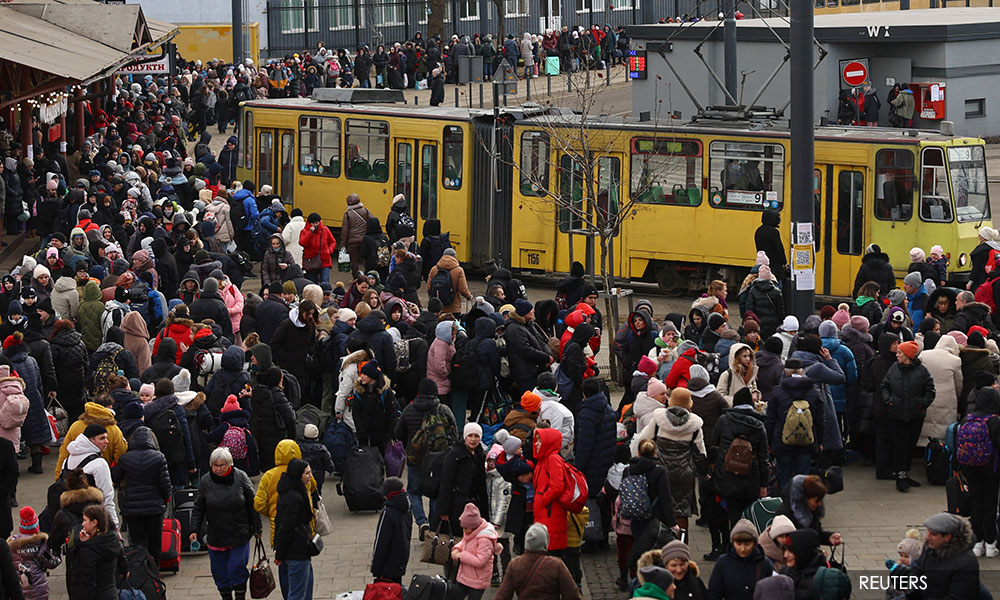
In the heat of such tumultuous circumstances, their only hope for survival is to run to countries that are accessible to them, often hoping that life will get better.
“I have been stopped four times by the Malaysian police because I didn’t have my documents. One time, I was stopped twice on the same day by different police officers,” laments Ali (not his real name), an undocumented Rohingya asylum seeker who boarded a boat to Malaysia to escape the ethnic violence in the Rakhine State of Myanmar.
The risk of arrest, detention and refoulement weighs down heavily on asylum seekers in Malaysia. If they are unsafely repatriated “home”, their lives will be in danger again.
Unrecognised, unemployed, unwanted
Malaysia is not a signatory state to the 1951 Refugee Convention and 1967 Protocol Relating to the Status of Refugees. Therefore, there is no legal framework to protect asylum seekers and refugees here.
Their rights to work formally are not recognised, although there is some allowance to do informal work. Asylum seekers and refugees can be arrested and detained for working even if they hold documents from the United Nations High Commissioner for Refugees (UNHCR) - the UN agency responsible for the documentation and welfare of refugees in Malaysia.
Families with elderly dependents or young children are also put at risk when their breadwinners and caregivers are detained.
Informal work, such as road sweeping and factory and construction work, presents additional safety risks to workers. Known as 3D jobs – dangerous, dirty and difficult - workers are exposed to health and safety hazards.
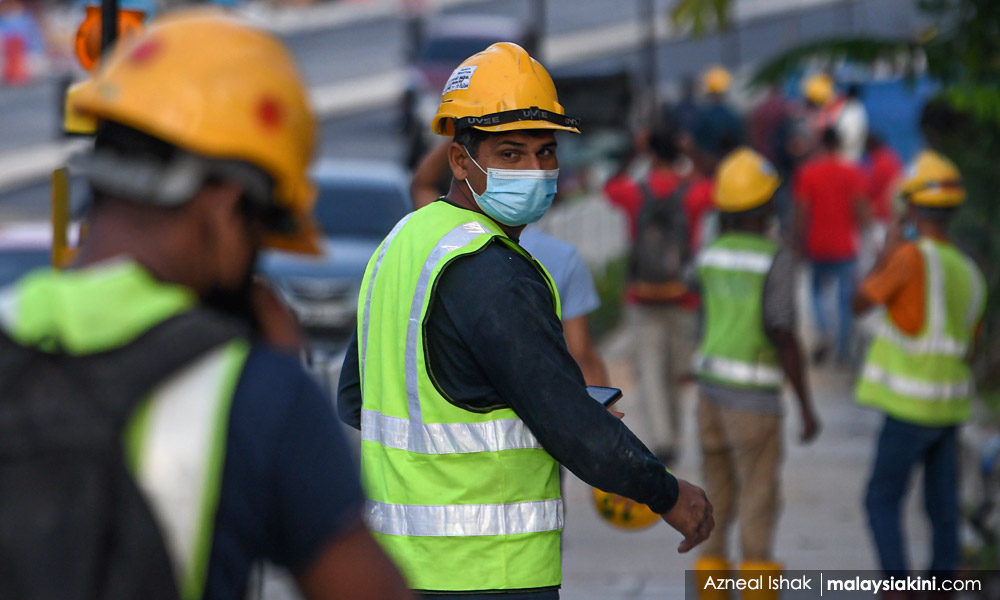
Razi (not his real name), a 17-year-old refugee boy, showed photos of chemical burns on his co-workers because of the lack of safety apparel while handling chemicals at his factory job. The irony of it all - he was working in a factory that manufactured gloves.
Without a legal framework, refugees are exposed to the risk of being exploited by unscrupulous employers who make them work long hours for very low wages.
Full-time work hours can range from 10 to 12 hours daily. Some workers are denied days off or sufficient daily breaks. Some employers have dismissed workers without paying them anything at all.
Refugees have been verbally, physically and sexually harassed or abused at work - forcing them to quit employment. Dishearteningly, without formal work contracts, there is hardly any means for redress.
Undocumented asylum seekers who are yet to register with the UNHCR, are at risk of being arrested and detained. The process of registration and their refugee status determination can take months to years.
The anxiety and stress of being undocumented and having no freedom of movement take a toll on their mental health. A simple trip to run errands can become a risky adventure.
There are inherently many safety challenges that asylum seekers and refugees face, but what cripples them further are the negative perceptions that some Malaysians harbour toward them.
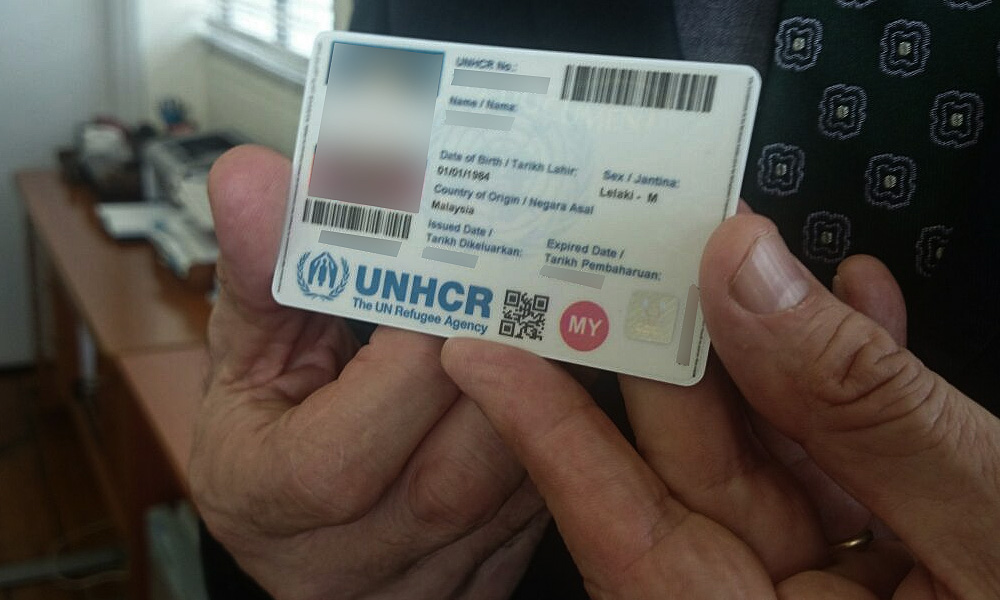
Safety in others
In 2020, four online petitions were launched and garnered over 200,000 signatories demanding the repatriation of Rohingya refugees.
Increasingly troubling were the raucous and spiteful comments on Facebook that reeked of hate speech, misinformation and vile sentiments.
If social media represents a snapshot of public perception, the reception towards refugees was nowhere near encouraging. Refugees have been made to feel unwelcome and unwanted.
The raid that took place at the Ampang condominium was motivated by a collective voice from the joint management board. Months prior to the raid, notices had been plastered in lifts and around the condo, with a deadline for refugees to move out because they were not wanted there anymore.
A similar incident happened last year in a condominium in Gombak, and in 2013, a condominium in Sunway tried to ban African students from tenanting their property.
Generalisations, stereotypes and discriminatory thinking dismantles safety and instil fear. As a country that has proven to embrace diversity and differences throughout the formation of our Malaysian identity, we appear to be undoing the things that helped us find safety in others.
‘Not everyone comes in a boat’
In January this year, the Akar Umbi Development Society launched its inaugural programme called the Azalea Initiative - a leadership programme for women.
Eleven women from Afghanistan, Somalia, Pakistan and Myanmar joined the seven-month course aimed at creating “change-makers” who will develop impact projects to empower their communities. The impact projects would address some of the needs or problems affecting their communities.
“I think there are countless things that need to be addressed. The main issue we see is what the Malaysians think about refugees,” said Amber, a participant from Pakistan.
She quotes the questions she has been constantly asked by Malaysians: “Did you come on a boat? How come you speak English? How can refugees be educated… or be well dressed… or be open-minded?”
One person had even asked her if there was a sea route from Pakistan to Malaysia!
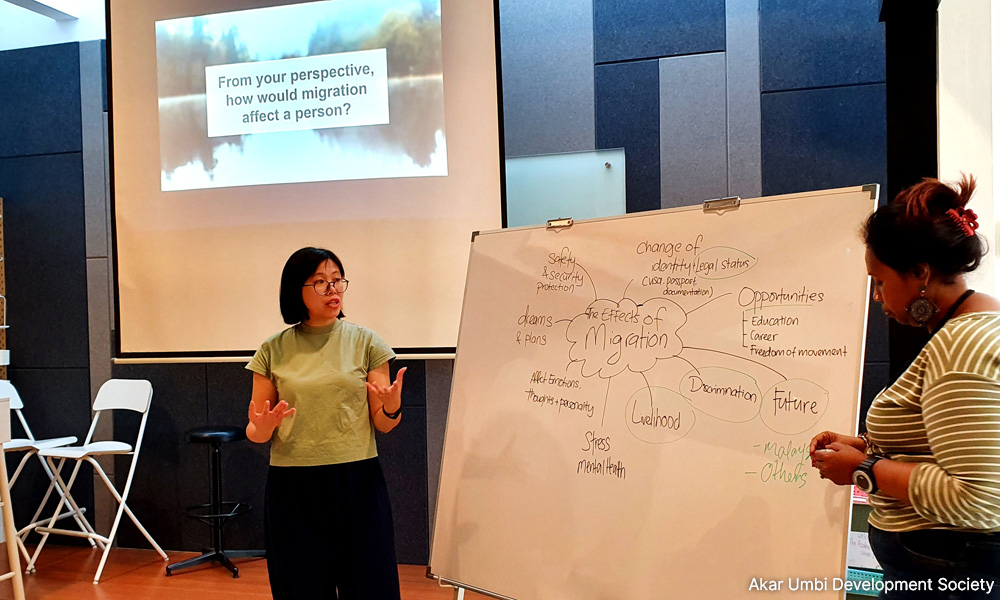
‘Not everyone comes in a boat’
For her impact project, Amber is collaborating with Abeera, a participant from Somalia, to run a theatre show and discussion about how Malaysians view refugees.
“If people know more about what refugees are and what they have to offer to society, the whole image will change, and more opportunities will be given to refugees to help out in society,” said Abeera.
The duo is planning on bringing the theatre show to different universities. Even if two or three are changed, they feel they have made an impact.
“If we have bad culture in our community, the change-maker wants to improve the culture. Changing is important,” shares Tamana, Fereshta and Farzana, from Afghanistan, who have banded together on their impact project - an art programme to address the stigma around mental health in the Afghan community.
The other impact projects range from livelihood-related initiatives to community-development activities. The ladies aged between 18-35 wear multiple hats as students, homemakers, parents and caregivers, yet they feel confident about the role they are playing to help change perceptions within and beyond their communities.
The Azalea Initiative was set out to be a safe space for the women to share honestly and empower each other. It is only from a place of safety that support and positive change can emerge. Perceptions need to be changed.
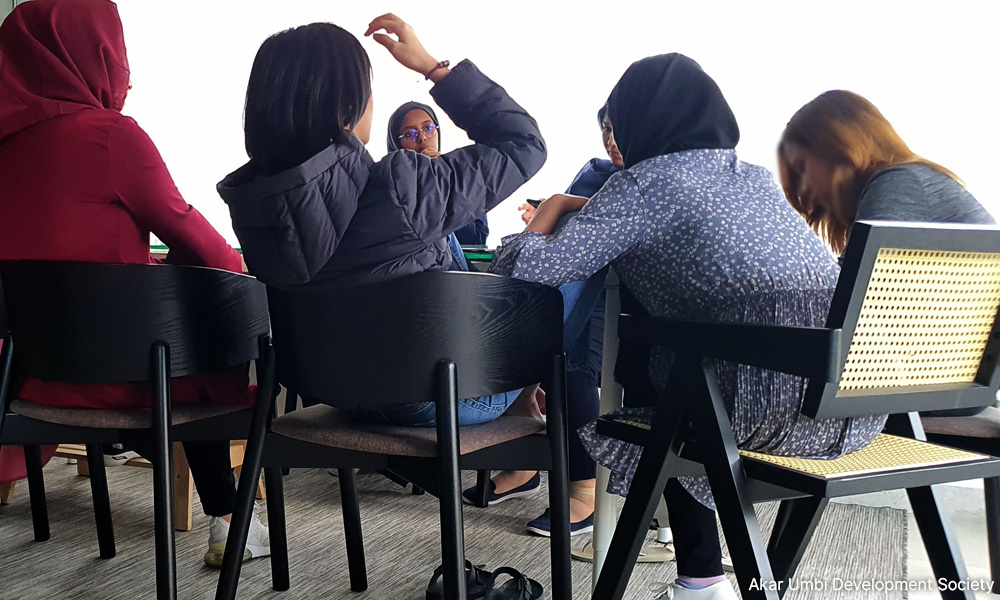
Safety starts with us
We feel safer when misconceptions and stereotypes about us are debunked. When we connect and listen to each other’s stories, we begin shedding the misconceptions we have about them. It starts with genuine empathy.
How do we connect with refugees? Many civil society organisations are at the heart of refugee-related work and are constantly looking for people in the form of volunteers and supporters who can journey with them.
The other basic way to engage with the grassroots is to pay attention to the people around us. Who are the ones who appear different from us? Who are the ones who seem to feel unwelcome and unwanted? How can I check my biases? Have I listened to their stories?
Reach out to them. They could be the ones needing safety that we provide through our kindness, presence and acceptance. - Mkini
KEVIN ROHAN THOMAS is a member of the Akar Umbi Development Society. The society is an organisation committed to ending marginalisation and providing equal opportunities to marginalised grassroots communities such as refugees, Orang Asli, urban poor, and the stateless. For more information, please visit www.akarumbi.org or follow on Facebook and Instagram @akarumbisociety.
The views expressed here are those of the author/contributor and do not necessarily represent the views of MMKtT.



No comments:
Post a Comment
Note: Only a member of this blog may post a comment.